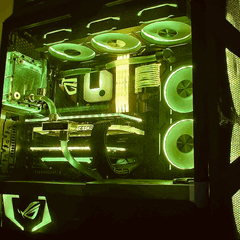Is Computer Science Hard?
20 hours ago, neonfirefox said:Im applying for a computer science major, and im average in math, how much math is required to become a software engineer or a software developer? Is this major hard to learn?
As a person who recently graduated (last year) in Computer Science, I can tell you that, you can put Computer Science part of the group of hardest degrees. What I mean, is that it isn't something you need to be gifted for graduating, what I mean, is that you need to take it very seriously starting day 1. Depending on your university, and option you take in the program, expect many times have "no life", and just be at university and working 8-9h per day, 7h on a good day. That is of course, if you want good grades, and not marginally passing, and failing courses here and there.
There is actually little programing in Computer Science. You have your Java/C++ course.. maybe haskell or F# or other rarely used programming languages, but that is it. Of course you only learn the programming language, there is no: How to develop a Windows application, course, or How to use Visual Studio... etc. Why? because University focuses on you being a researcher, not be in the work field. So, beside Computer Science, (and this adds to the program difficulty), is that you need to do the rest on your own time, including personal projects, that is if you want to stand out for when you apply for a summer interships/job or your first job in your resume. Remember, MANY people just have a CS degree. Why would they pick you over anyone else? So you need something to stand out. Of course, that does not apply if you plan to do a Master degree and phD later on.. in that case, just focus on your academic work, as that is the only thing that matters.
The program is filled with "math". Why did I put math in quotes? Because while you have your standard engineering math classes, which may or may not apply to your career depending on what you plan to do, you have other courses that uses the LOGIC side of math. So, it isn't some more calculus or linear algebra classes or what not, but it is the logic side that takes place. You also have LOTS of proofs to make, which will test your deep understanding of the material.
I was average on math, but I like math. I made it. You just have to be persistent, and motivated to push yourself continuously. Basically, what I am saying is, that any degree is "easy", if you know what you want to do at the end, if you are interested in it (it is normal to have a few courses you end up not liking), you'll be engaged to learn as you'll have fun, despite the many challenges one can face.
That is my advice.


















Create an account or sign in to comment
You need to be a member in order to leave a comment
Create an account
Sign up for a new account in our community. It's easy!
Register a new accountSign in
Already have an account? Sign in here.
Sign In Now